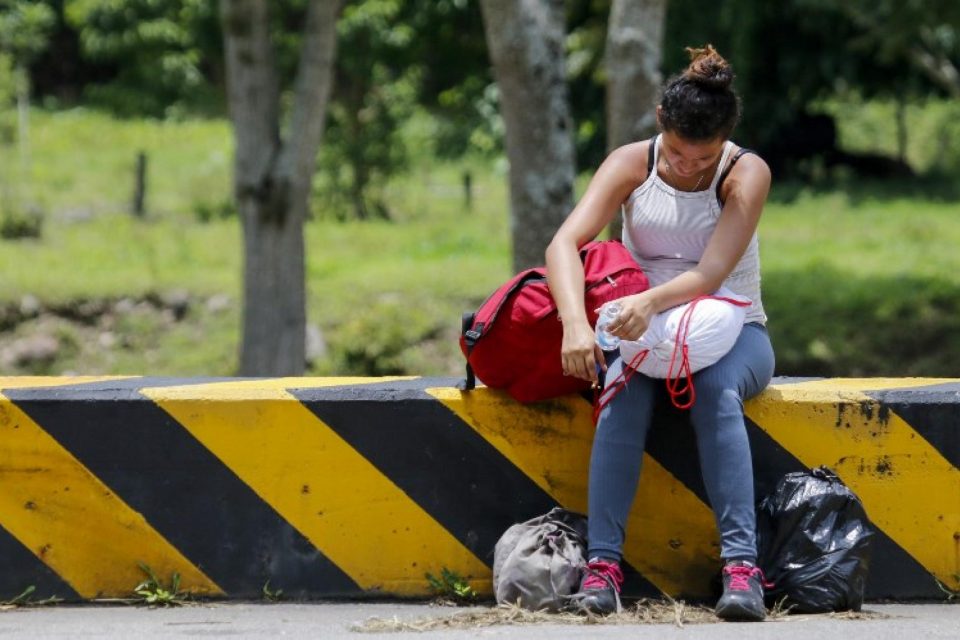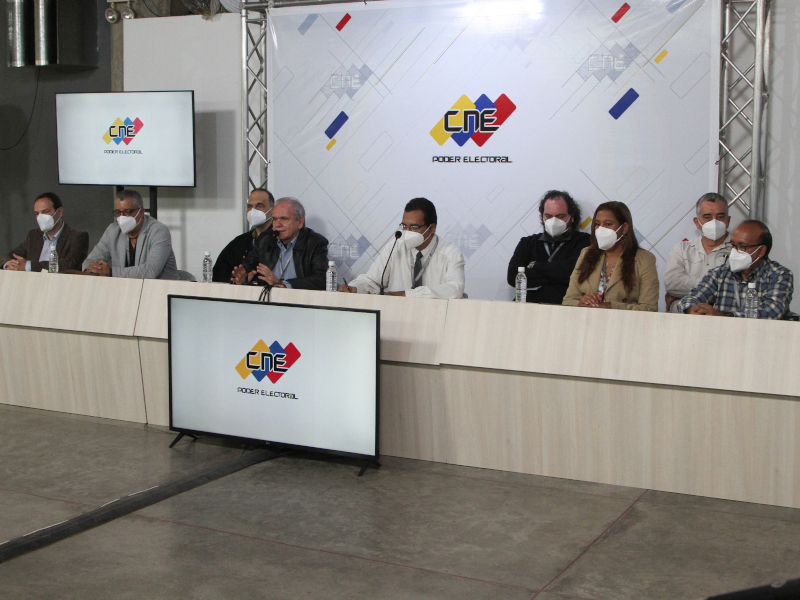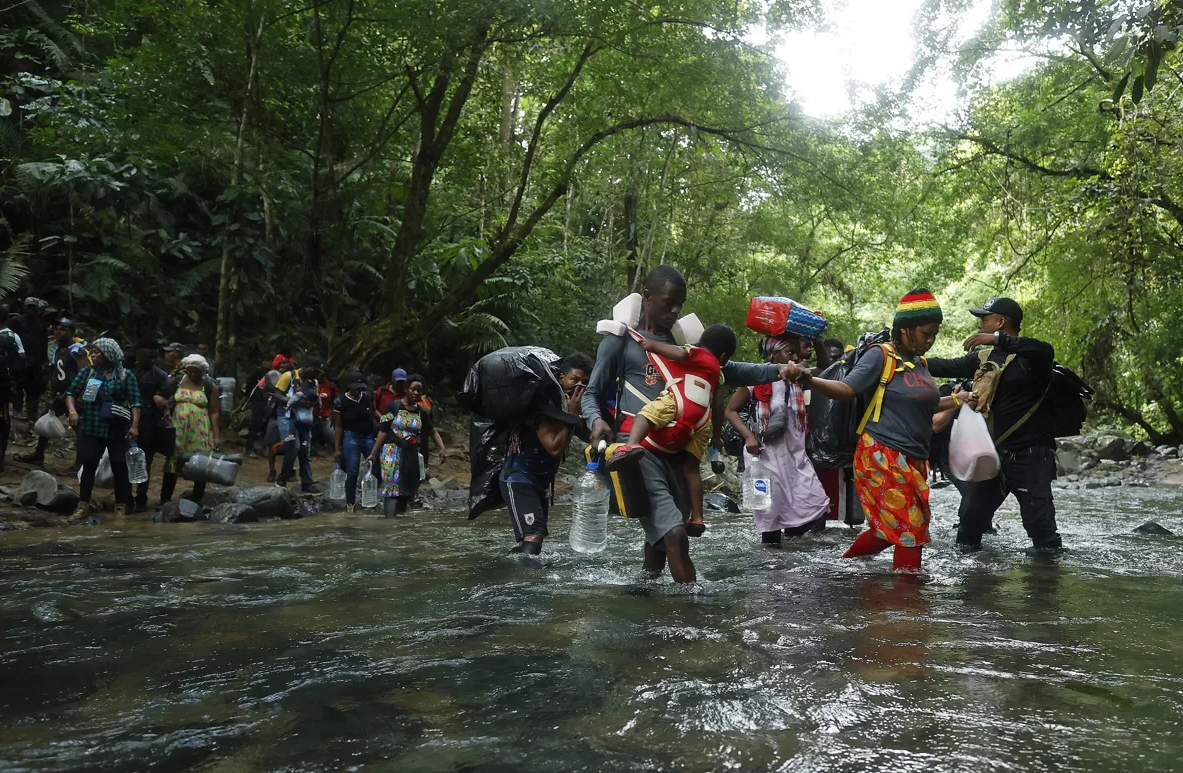Lucía* is a 13-year-old girl who lives in Pueblo Nuevo, a poor area in downtown Mérida, in the Venezuelan Andes.
A few months ago, she was raped and got pregnant. She does not understand why her teacher, who helped her have an abortion, is in detention. And she even feels guilty.
Vannesa Rosales, a teacher and a well-known activist in Mérida for women’s sexual and reproductive rights, was arrested on October 12, 2020, and has been under house arrest since January 11 awaiting trial.
In the midst of increasing feminist advances in the region, the case brings attention to the archaic abortion legislation in Venezuela, one of the most restrictive in Latin America and that does not even allow the termination of pregnancy in a case of rape such as Lucia’s.
Activists see the case as an inflection in a conservative country where many struggles for social rights have been ignored in the face of the ongoing political conflict and economic crisis.
Rosales, 31 years old and prevented from speaking to the media by court orders, is accused of “inducing an abortion with the aggravating circumstance of having been committed on an adolescent” and “association to commit a crime,” according to the court order of January 11.
The case
Venus Faddoul, an activist, friend of Rosales and now part of her defense team, told BBC Mundo that the teacher had worked for years in Pueblo Nuevo and had known Lucía since she was a child.
“I was not going to leave her abandoned,” says Faddoul, who affirms that the same doctor who treated Lucia at the beginning for malnutrition and other problems, confirmed that it was difficult to complete the pregnancy because her uterus was not yet developed.
Lucia was raped by someone from her community. The man was arrested and released. Now he is on the run.
On Sunday, January 10, when Rosales’s case was already public in the media, the Venezuelan attorney general, Tarek William Saab, published on Twitter a request to Interpol for an arrest warrant against the alleged rapist.
The following day, the court granted the activist a house arrest measure. That the man was released and is now on the run while Rosales is detained adds outrage among activists.
When Lucia’s mother found out that the girl was pregnant, she sought the help of Rosales, who provided information and misoprostol pills, a medicine used to interrupt pregnancy.
A subsequent visit to the hospital by Lucia and her mother led to a formal complaint and the subsequent arrest of Rosales and the mother of the minor, who was not sent to prison because she is also in charge of a child of nursing age.
Once in the detention center, an agent questioned Rosales about how she could have induced abortion on a 13-year-old girl.
“Precisely because she is 13 years old,” she replied, according to Faddoul.
Several months later, a campaign with national and international organizations is denouncing the case.
And that coincided with the house arrest measure and with the prosecutor’s tweet.
A 19th-century law
Article 432 (and following) of the Venezuelan Criminal Code regulates abortion in the country. It provides for prison sentences and it is the legal base for the accusation against Rosales.
The legislation dates from the 19th century and does not contemplate any legal mitigation, not even rape.
Only in the case of “an indispensable means to save the life of the woman in labor” will abortion carry no penalty. And the punishment will be reduced if the “author of the abortion has committed it to save the own honor or the honor of a wife, mother, descendant, sister or adopted daughter.”
“In other countries, a case of abortion due to rape is not a crime, (abortion) is a service provided by the State,” says Magdymar León, coordinator of AVESA (Venezuelan Association for Alternative Sex Education).
This archaic and restrictive law forces clandestine abortions which carry risks for women and causes the existence of mafias that operate on the black market.
According to a 2019 AVESA report entitled “Women on the Limit”, for every three deliveries in hospitals in Venezuela, one abortion is attended.
This indicates that there is a certain “acceptance” of society since this high number of cases does not translate into complaints, León emphasizes.
It was not what happened to Rosales in Mérida, where the case was reported when Lucía went to the hospital with her mother.
This adds up to a context of lack of sexual education in which the economic crisis has made it even more difficult to obtain contraceptive methods.
“We are in an extremely precarious situation,” criticizes Faddoul.
“A historic moment”
Activists see this case as an opportunity to at least make the norm more flexible and to consider the causes of rape, risk to the life of the woman and the unfeasibility of the fetus.
And that’s how Rosales understands it.
“She was aware of the risks. At some point we knew this was going to become public,” says Faddoul, from the teacher’s defense team.
“Vannesa knows that it is a historical moment and we must know how to handle and interpret it to generate changes”, affirms the activist.
“This is the moment, it is a point of inflection thanks to the media and institutional pressure we put together,” she adds.
Several elements fuel that optimism. In addition to the judge’s decision to grant Rosales house arrest and the prosecutor’s tweet shortly after the start of the campaign, more than 200 national and international organizations denounced the case jointly.
And in such a polarized country, the case has managed to unite groups close to the ruling Chavismo and the opposition.
“We managed to unify organizations of all political leanings for the first time, it is very satisfactory”, emphasizes Faddoul.
“After so much pressure, no political factor is willing to endure this war,” she adds.
The ways for change
A few days ago, journalist Vladimir Villegas asked Jorge Rodríguez, a Chavismo figure and president of the new National Assembly dominated by the ruling party, about abortion on television.
It was not a question about the Romero case, but about whether Parliament would debate legislation like the one recently approved in the Argentine Senate.
“We did a consultation that came to have more than 40 proposals. I cannot discuss my position, but everything will be done in consultation with the people,” Rodríguez said in an unusual comment on abortion by a political leader.
The answer was replicated by a Twitter account of the ruling party, the PSUV (United Socialist Party of Venezuela).
The party, which is described as left-wing, did not advance in a change of legislation and neither did the opposition, which held a majority in the National Assembly from 2015 until January 5.
Venezuela is a conservative and Catholic country where the evangelical movement, as in all of Latin America, has also been gaining ground.
President Nicolás Maduro incorporated messages for this group in the 2018 presidential election campaign, in which the evangelical pastor Javier Bertucci, now a deputy, participated.
León knows that abortion is a controversial debate, but believes that an “interesting scenario” is now opening up.
She believes that the route through the National Assembly is more feasible than that of the Supreme Tribunal of Justice (TSJ), which is yet to admit an appeal to decriminalize abortion since 2018.
León is realistic and knows that broad decriminalization cannot be proposed without grounds.
“That is not going anywhere. We cannot go from zero to 100 in a single jump, but I see a very high probability for an approach that relaxes the rule with causal factors,” she says optimistically.
León regrets that most of the political parties do not even have a position on the issue, although, in a survey that she conducted as part of academic work in 2012 among members of Parliament of different parties, she found that “all agreed to decriminalize under these three conditions”.
However, an eventual and still very distant law would also face a conflict with the Constitution, since article 76 says that the State will protect maternity “from the moment of conception.”
“The issue is relevant because if abortion is prohibited in the Constitution, the reform of a single law would not be enough,” constitutional lawyer José Ignacio Hernández tells BBC Mundo.
Meanwhile, Rosales awaits trial locked up in her house, where the pain from three months in a precarious prison in Mérida is beginning to show up.
But she is satisfied that she has helped Lucia and that Venezuela is talking about the decriminalization of abortion.
*The name was changed for protection.
Translated by José Rafael Medina




